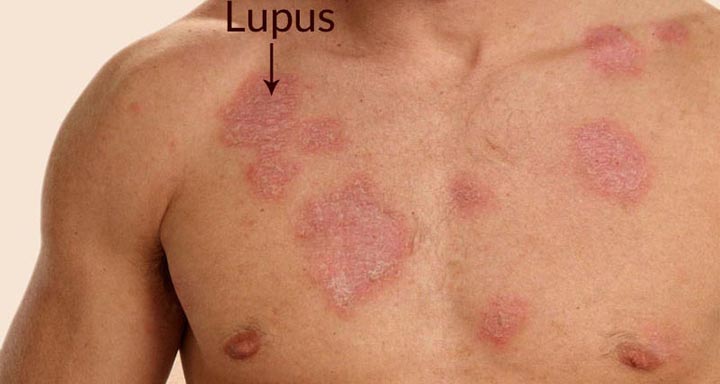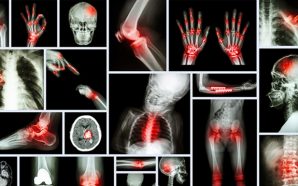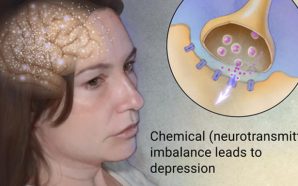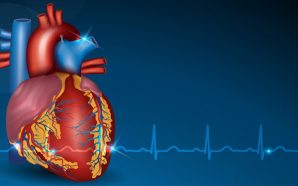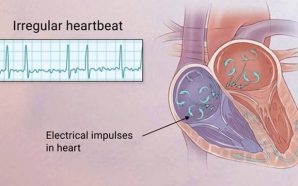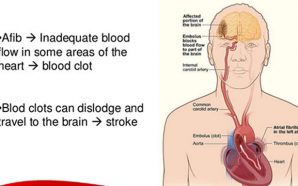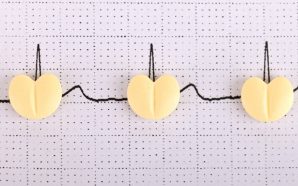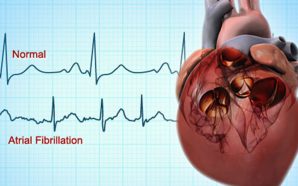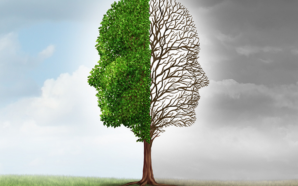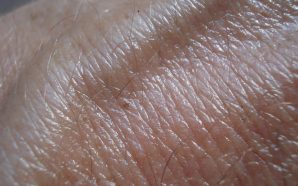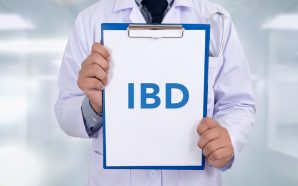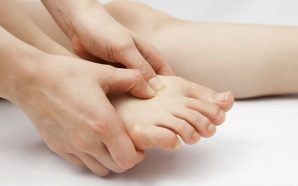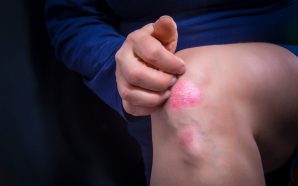-
While the signs of rheumatoid arthritis can seem hidden and unnoticeable, they may be more visible than you might think. Although there are indeed rheumatoid arthritis signs that some people might not be able to pick up on, there are still plenty of other symptoms that you’ll be able to...
-
You’ll often hear older adults complaining about aching and soreness in their joints, even when doing tasks that don’t seem that strenuous. Medical experts estimate that nearly 50% of seniors get a diagnosis with a form of arthritis, making it a condition directly associated with aging. While it can...
-
When it comes to what you can do to help loved ones with depression there are several things one can do to help them get through this time of their life. One of them is being open and talking about depression. Family members or closest friends are the ones who...
-
Before knowing how to deal with treatment-resistant depression, it is important to know what depression really is. It is true that every person gets down at a given from time to time, but when sadness lasts up to two –or even more –weeks, it may exhibit clinical depression. It’s very...
-
We all know someone who has suffered, or still is suffering from depression. While many underestimate the power of this disease, those who have seen it affect someone they care about will definitely tell you otherwise. Emotional pain is just as real as physical pain and mental health issues...
-
Firstly, depression medication options patients have in managing the disorder’s symptoms usually consist of antidepressants. And besides their use in managing depression, antidepressants also work for conditions that have strong links to depression. For instance, someone who suffers from Bipolar Disorder may also be put on antidepressants along with...
-
Did you know that as your child grows, he or she undergoes various development phases? This can really make it difficult for you to distinguish whether your child is in his or her normal mood or undergoing depression. According to World Health Organization (WHO), nearly half of the mental...
-
Depression is something 1 out of every 10 Americans will experience at some point in their life. However, many ignore or misunderstand the signs of depression because of the myths and stigmas that surround the disorder. And the fact that some people often do not take it seriously and...
-
The prevalence of Atrial Fibrillation is set to increase in the coming decades. Thus, physicians are trying to formulate an action plan to circumvent the growing crisis. But what is the root of the condition?While the exact cause of Atrial Fibrillation remains unknown, the disease is more prevalent in...
-
Atrial Fibrillation (or AFIB) is an irregular heartbeat, and the most common heart arrhythmia, affecting over 2.7 million Americans. There is an existing connection between AFib and stroke, with 20% of strokes being attributed to atrial fibrillation. Stroke, which is the number four cause of death in the U.S.,...
-
Atrial Fibrillation is a medical condition characterized by irregular, rapid heart rhythm. It primarily affects the atria, which are the two upper chambers of the heart. The arrhythmia, an irregular rhythm, is caused by abnormal electrical impulses in the heart due to a lack of coordination in atrial activity....
-
If you have atrial fibrillation, there is a good chance you will suffer a stroke. Atrial fibrillation is a type of abnormal heart rhythm in which the two upper chambers of the heart contract rapidly and irregularly without fully pumping blood into the lower chambers. Studies into AFIB and...
-
Who Is Affected by Afib? Atrial fibrillation, dubbed as Afib, is a heart condition characterized by an irregular or abnormal heartbeat. This condition affects close to 3 million people in the USA and over 1 million in the UK. Approximately 2% of people with atrial fibrillation are between the...
-
One of the most common cardiac arrhythmia cases is Atrial Fibrillation (Afib). It is a condition which results in the quivering of the atria instead of them contracting in a coordinated beat. The simplest method to check this is to take a pulse and observe. A regular heartbeat should...
-
Each life has its ups and downs. In any case, when the “ups” are too high and the “downs” are too low, and the swing between the two is excessively unexpected, bipolar disorder may be the diagnosis. Bipolar disorder, otherwise called hyper-depression, is a temperament disorder that causes behaviors,...
-
Depression is a health condition that is associated with various symptoms such as loss of interest, low thinking, change in eating and sleeping habits, the melancholic mood among others. There are two types of depression, unipolar and bipolar depression. A clinical officer needs to identify which kind of depression...
-
Bipolar disorder is an emotional instability that includes quick change of temperament conditions. As the name infers, “bi” implies two or double and “polar” indicates extremity. By application, this implies a man with manifestations of bipolar disorder tends to suddenly change polarities from amazing joy down to extreme misery...
-
Bipolar disorder is not a new concept in the medical field seeing as many people have been diagnosed with the condition. Awareness, as well as acceptance, has substantially increased. However, very little is known about distinguishing the two existing types of bipolar disorder which entail bipolar I and bipolar...
-
Bipolar disorder is a mental condition characterized by alternating periods of mania and depression. This disorder can be very serious and may result in employment problems, family conflict, or even heavy substance abuse. The severe health and social impact of this condition make diagnosis and treatment incredibly important. What types...
-
Bipolar disorder is a lifelong mental illness that causes extreme highs and lows in both behavior and in state of mind. These sudden emotional shifts are referred to as either manic or depressive episodes, and they can be the source of great difficulties in the life of someone who...
-
Melanoma is a worrisome form of skin cancer which could lead to more severe health issues if left undiagnosed. This skin cancer is not as common as other types of skin cancer but it does cause majority of the deaths from the disease. There are so many factors that...
-
Shingles (herpes zoster; zoster; or zona) is a painful, blistering skin rash, most commonly appearing as a band or stripe on one side of the body. The rash evolves into clusters of blisters, which fill with fluid, and finally, within seven to ten days, the blisters crust over. Eventually,...
-
Shingles (sometimes called herpes zoster) is a viral infection that causes a painful, blistered rash that most commonly appears as a band or stripe on one side of the body. It’s caused by the same virus that causes chicken pox, which does not go away after recovery but remains dormant in...
-
Chickenpox and shingles Chickenpox and its viral cousin, shingles, are caused by the varicella-zoster virus. They are highly contagious diseases that are more dangerous to teens and adults than to most children. Extreme itchy spots that are raised all over the skin characterize these diseases. Most adults and teens...
-
How would you guess that you have got shingles? Shingles pain is one of the clear indications, but it occurs in stages and certain patterns. First, you need to know that shingles are a manifestation of the same virus that causes chicken pox. It is known as varicella zoster....
-
The predominant shingles symptom is a painful rash most commonly appearing as a band or stripe on one side of the body. The same virus that causes chickenpox, called varicella-zoster, also causes shingles. Anyone who has had chickenpox is susceptible to shingles, and those who are over 50 years...
-
Shingles is a painful and persistent condition that causes rashes and blisters to develop across a person’s body. While it’s rarely fatal, shingles can be debilitating, and symptoms may last longer than a month. Thankfully, a vaccine known as Zostavax has been developed which can potentially prevent breakouts. Here...
-
What is Diarrhea If you are experiencing three or more loose bowel movements in a day, you are suffering from a condition known as diarrhea. An episode of loose bowels simply means that the increase of water is present in the fecal matter, sometimes making the bowel movement a...
-
Diarrhea is an embarrassing and potentially serious condition in which your stools become much more watery and loose than usual. There are a number of different factors that can cause diarrhea, such as illness, diet, or certain medicines. Regardless of its origins, diarrhea is a problem that needs to be...
-
IBS symptoms can be uncomfortable to experience, but natural home remedies can help to alleviate the pain! Do you have IBS? Irritable bowl syndrome involves abdominal pain, diarrhea, and constipation. It’s quite frequently linked to stress, depression, anxiety, or a history of infections in the intestines. It’s quite possible...
-
Irritable bowel syndrome can have a very negative impact on your lifestyle. The condition can turn an otherwise lovely day on its head. The sad part is that the condition has no known cure since a variety of factors can cause it. These factors include diet, stress, previous intestinal...
-
Irritable Bowel Syndrome (IBS) afflicts millions of people around the world. It is characterized by symptoms like recurrent abdominal pain, constipation, irregular bowel movements, abdominal distension, and bloating. All of these symptoms occur because the digestive tract or intestines fail to work properly. To diagnose this problem, doctors perform...
-
Chronic diarrhea refers to loose stools lasting for a minimal period of four weeks. There are various likely causes of chronic diarrhea, and chronic diarrhea treatment aims to correct the causes of diarrhea and any symptoms patients may be suffering from. If you experience diarrhea, and most people do,...
-
Although inflammatory bowel disease (IBD) and irritable bowel syndrome (IBS) can have similar symptoms, they are two very different things. IBD is a group of diseases (like ulcerative colitis or Crohn’s disease) that result in areas of intestinal tissue becoming inflamed because of an improper bodily immune system response....
-
Irritable bowel disease , or irritable bowel syndrome (IBS), is a chronic gastrointestinal (GI) disorder that causes a combination of bloating, gas, diarrhea, constipation, and abdominal pain. Each patient’s case may be different, both symptomatically and in severity, and thus require different forms of treatment. In most cases, a careful...
-
Irritable bowel syndrome (IBS) is a fairly common disorder that causes distress in the large intestine. Its symptoms can be potentially embarrassing and painful and include constipation, diarrhea, cramps, and gas. While there is no cure for IBS, there are certain steps you can take to manage the condition,...
-
Irritable Bowel Syndrome (IBS) is a common functional disorder resulting when the large intestine contracts improperly, either too quickly or too slowly. When these irregular contractions happen it causes a host of symptoms that may include cramps, intermittent pain, gas, and diarrhea or constipation. The cause of IBS is...
-
Inflammatory bowel disease (IBD) is an umbrella term for a group of autoimmune conditions that cause inflammation in the gastrointestinal tract. The symptoms can be severe and painful for any of the several types, of which Crohn’s disease and ulcerative colitis are the most common. If you suspect you...
-
Irritable-Bowel Syndrome (IBS) is a common condition that mainly affects the intestine causing recurrent left-side abdominal pain, bloating, diarrhea, and/ or constipation. It is often associated with stress, depression, anxiety, or previous intestinal infection. According to doctors, it is common in one in every five Americans. Who should look...
-
Diabetes is a condition that has become the focus of many health experts. Be that as it may, the fact that this condition is caused as a result of sedentary lifestyles makes it easier for it to be managed. One such way is following a diabetes diet. The essence of this...
-
According to the CDC, an astounding 29 million people across the United States suffer from diabetes, and another 86 million suffer from pre-diabetes. In Canada, over 3.4 million are affected by the disease. To make things worse, hundreds of millions in healthcare costs accrue each year as a result...
-
For many aging people, pain, cramping or tiredness in legs while walking or climbing stairs may not sound as symptoms of a serious medical condition. In fact, the majority of people believe that they are normal signs of aging. Nevertheless, they can be symptoms of a form of nerve...
-
New research has now shown that lack of sleep is linked to type 2 diabetes. The research also indicates that people who have diabetes have problems when sleeping. Such issues include not falling asleep easily or problems shutting their eyes at night. Perhaps you have been experiencing this and you...
-
Did you know that over 18 million adults and children in the United States have been diagnosed with diabetes? Common signs and symptoms of diabetes include: Always needing to urinate Always being thirsty Unexplained weight gain or weight loss Fatigue Prone to infections Slow healing of minor injuries (cuts,...
-
Plaque psoriasis is an inherited or genetic inflammatory disease. Approximately 2% of America’s population suffers from Psoriasis. Of the 2%, 90% suffer from plaque psoriasis. Psoriasis is caused by an immune system malfunction and results in red, swollen skin. Patients will see effects of the disease mainly on (but...
-
Psoriasis is an autoimmune ailment that reveals its self as a skin condition and affects 1-3 % of people. A study revealed that those with the disorder are likely to be at risk of suffering anxiety, having thoughts of suicide and depression. Though it affects your skin, psoriasis starts...
-
Psoriasis Vulgaris, also known as plaque psoriasis, is the most common form of psoriasis. Almost nine out of every ten people suffering from psoriasis have this type of chronic skin condition. Plaque psoriasis usually affects the skin on your elbows, knees, scalp, and lower back. Symptoms Characteristically, plaque psoriasis...
-
Plaque psoriasis is a painful and potentially embarrassing condition in which the skin produces too many cells. This overproduction leads to patches of thick, scaly skin that flakes and is frequently itchy. It’s possible to regulate the symptoms of plaque psoriasis, but as a chronic condition, it will continue...
-
Psoriasis is a chronic condition in which skin cells grow too quickly. The result is large patches of red, raised skin, skin scales, and flakes of dry skin. People with the condition may see symptoms that range from mild to severe. The severity depends on other factors in their environment, such...
-
Allergies are caused by a hypersensitive immune system that flags an otherwise harmless substance in the environment as if it were a disease-causing organism. When your immune system overreacts in this way, it sets off a chain of events with a goal of saving your life from a harmful...






